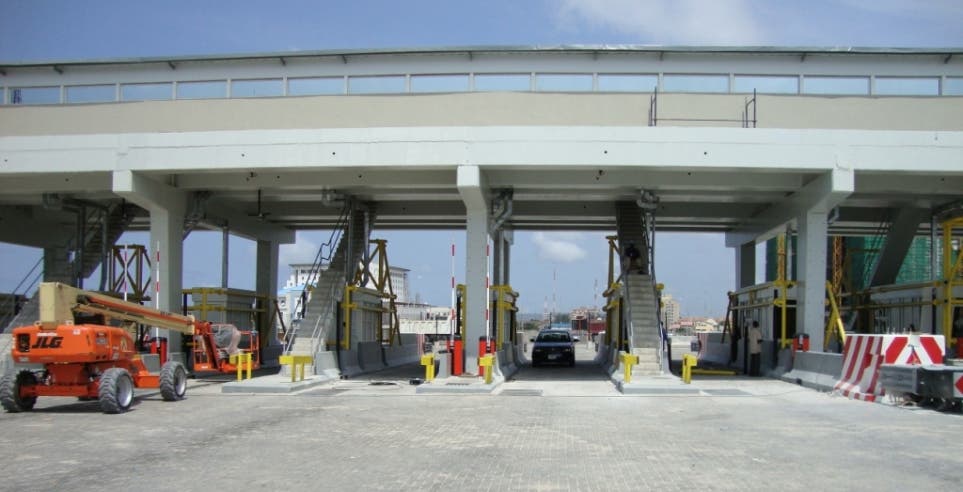FG Plans Tolling On 12 Highways

In its bid to ensure the regular maintenance of its road network across Nigeria, the Federal Ministry of Works and Housing plans to concession no fewer than 12 federal highways to private entities to manage.
The arrangement would enable the private companies to introduce toll gates on the 12 highways and collect revenue which they would use and regularly maintain such roads.
This information is contained in a document, which Vanguard obtained, yesterday, from the Federal Ministry of Works and Housing in Abuja.
The 12 highways to be concessioned under the Ministry’s “Highway Management Development Initiative”, HMDI, are: Benin-Asaba, Abuja-Lokoja, Kano-Katsina, Onitsha-Owerri, Shagamu-Benin and Abuja-Keffi-Akwanga.
Others are: Kano-Shuari, Potiskum-Damaturu, Lokoja-Benin, Enugu-Port Harcourt, Ilorin-Jebba, Lagos-Ota-Abeokuta and Lagos-Badagry-Seme Border.
The roads, according to the ministry, come under the pilot phase of the HDMI to be managed by selected private sector investors under its Value-Added Concession, VAC, arrangement.
The 12 highways according to the document reviewed by Vanguard represent merely 5.6 percent or 1,963 kilometres of the country’s 35,000 km federal highway network.
“It’s not really about revenue; it is about the expected injection into the economy. The estimated private sector investment required for the development and maintenance of the 12 routes is N1.34 trillion and the impact such investment will have on the economy cannot be overstated.
The anticipated private sector investment will stimulate thousands of job opportunities for Nigerians as the Highway Economy comes alive along federal highways.
A minimum 50,000 direct jobs and over 200’000 indirect jobs are envisaged to be created spanning construction works, installations, steel fabrication, security, hospitality, vehicle repairs, waste management and administrative work as the Value Chain along the Highway Economy is activated. The combined impact of this mini economy will be a significant boost to our national GDP as productivity and earnings are enhanced,” the ministry document boasted.
Beyond the Value-Added Concession, VAC arrangement, the FMWH is also planning to use another vehicle known as the Unbundled Assets Approvals initiative, UAAI, to maximize the use of its assets on the highways.
Under this category, the ministry plans to issue approvals/permits to individuals to use assets on the right of way on a Build, Operate and or maintain basis.
Both the VAC and the UAAI, according to the ministry aim to provide adequate highway services through the development of revenue-generating assets along the highway.
“This is key to maintaining the functionality of the highway as well as engaging and generating wealth for indigenous small and medium enterprises,” it says.
The ministry explained that it had already obtained the approval of the Infrastructure Concession and Regulatory Commission, ICRC, to go ahead with the implementation of the HMDI which incorporates the concessioning of the highways and the right of way to private sector operators.
Explaining the objectives of the HMDI, the ministry said: “The objective is to develop an eco-system along the federal highway network by bringing multi-dimensional resources of skills, manpower, finance, technology, and efficiency into the National Highway governance.
“Ultimately, this home-grown initiative will be the lasting solution to the development and management of federal highways by introducing order, accountability and profitable entrepreneurship to the operation, management, and maintenance of Nigeria’s 35,000 km federal highways.
“The Initiative is expected to be anchored on private sector engagement via concessioning of economically viable routes to technically and financially capable private companies, through the management and development of the right-of-way. A major hindrance to highway development and management has been a paucity of required funds to service the vast and ever-expanding road network. To negate this handicap, the FMWH proposes the engagement of concessionaires who will manage and develop the right of way, whilst maximizing its commercial potential.
“The main objective of the Initiative is to attract expertise and sustainable investment/funding in the development of road infrastructure and to maximize the use of assets along the Right of Way and develop other highway furniture,” the ministry pointed out.

